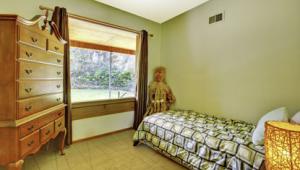By Richard Johnstone | 8 January 2015
The government’s ‘bedroom tax’ has affected a greater proportion of tenants in Wales than in Scotland or England, an analysis by the Wales Audit Office has found.

Examining the impact of the government’s welfare reforms on social housing providers and tenants, which also include reductions to Housing Benefit in order to meet the £26,000 annual benefit cap, the WAO said that they were having ‘a significant impact’ on councils, housing associations and tenants. Councils and housing associations were struggling to devise ways to deal with the impact of the policies, the Managing the impact of welfare reform changes on social housing tenants in Wales report warned.
It found the Bedroom Tax, which reduces Housing Benefit for claimants if they are judged to have unoccupied rooms and is officially known as the spare room subsidy, had applied to a greater proportion of social housing tenants in Wales.
According to the analysis, a greater proportion of Welsh social housing tenants claim Housing Benefit (73.7%) than in England (69.7%) or in Scotland (63%).
Of these, one fifth of those receiving Housing Benefit in Wales have been subject to the bedroom tax. This is higher than the 19% of claimants in Scotland and 15.3% in England.
The report also found there was increasing poverty and debt amongst some social housing tenants, which coincided with these changes. Rent arrears of current social housing tenants in Wales have increased, with the number of tenants in arrears increasing by almost a quarter (23.3%) in the six months following introduction of the changes.
This was leading to increased costs for councils, but there were weaknesses in how councils were responding to the changes, the report stated, and mitigation approaches were not always being comprehensive.
For example, although the removal of the spare room subsidy has resulted in increased demand for smaller homes, councils and housing associations have done little to increase their supply of such stock either though new build or conversion.
The report recommended councils and housing associations should improve strategic planning and better coordinate activity to tackle the impact.
In particular, councils should devise a single corporate approach that coordinates activity across the council and the work of others.
Auditor General for Wales Huw Vaughan Thomas said the welfare reforms were having ‘a significant impact on social housing providers and tenants in Wales’.
He added: ‘Councils and social housing providers need to work together more closely to find sustainable solutions that will mitigate the risks to tenants that are arising from these changes and the further reforms which are due to be implemented.’





















